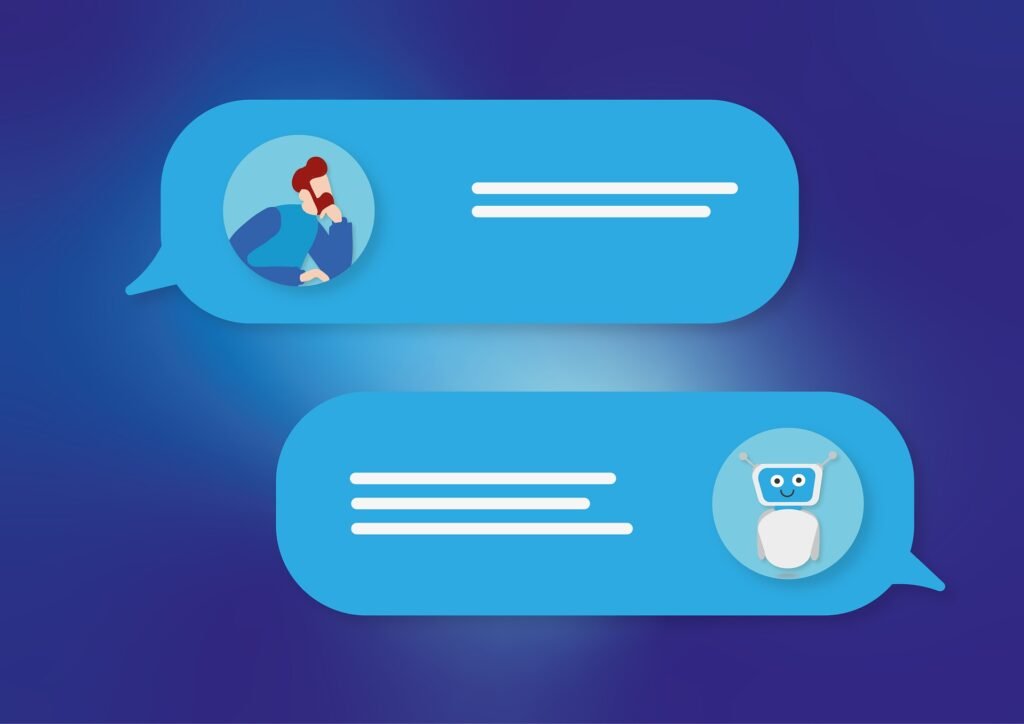- 1. What Are the Open Rates for SMS Messages?
- 2. How Quickly Are SMS Messages Read?
- 3. What Is the Response Rate for SMS Marketing?
- 4. What Is the Average Click-Through Rate for SMS Marketing?
- 5. How Do Consumers Feel About Receiving SMS Messages from Brands?
- 6. How Many People Will Opt-In to Receive Business SMS Messages by 2024?
- 7. What Is the Conversion Rate for SMS Marketing?
- 8. How Widespread Is SMS Usage Globally?
- 9. Do Customers Prefer Texts Over Calls or Emails?
- 10. Should Businesses Use SMS More Often?
- 11. What Are the Costs Associated with SMS Marketing?
- 12. How Effective Is SMS Marketing at Grabbing Attention?
- 13. What Is the Opt-Out Rate for SMS Marketing?
- 14. What Kind of ROI Can SMS Marketing Deliver?
- 15. Do Millennials Prefer SMS Over Email?
- 16. How Do SMS Messages Influence Purchasing Decisions?
- 17. Is SMS the Most Effective Way to Reach Consumers Quickly?
- 18. What Is the Delivery Rate for SMS Messages?
- 19. Are Businesses Planning to Increase Their SMS Marketing Budgets?
- 20. How Many People Use Text Messaging for Business Purposes?
- 21. How Fast Do People Respond to SMS Messages?
- 22. How Many Small Businesses Use SMS Marketing?
- 23. How Effective Are SMS Campaigns Compared to Email Campaigns?
- 24. How Quickly Are SMS Messages Read?
- 25. How Do Consumers Perceive Companies That Offer SMS Support?
- 26. Do Consumers Prefer Texting for Appointments and Scheduling?
- 27. How Can SMS Reminders Reduce Missed Appointments?
- 28. What Is the Redemption Rate for SMS Coupons Compared to Email Coupons?
- 29. How Do Surprise Text Offers Impact Consumer Behavior?
- 30. How Does SMS Marketing Affect Customer Retention?
- Conclusion
- We got all the latest Marketing Stats here:
As we move into 2024, SMS marketing continues to be a powerful tool for businesses looking to engage with their audience. With incredibly high open and response rates, SMS offers a direct and personal way to reach customers. This article delves into essential statistics, trends, and predictions for SMS marketing in 2024, providing insights to help you harness the full potential of this channel. Whether you’re new to SMS marketing or looking to refine your strategy, these statistics will guide you in making data-driven decisions.
1. What Are the Open Rates for SMS Messages?

Unmatched Open Rates
SMS open rates are as high as 98%. This staggering number highlights the effectiveness of SMS as a communication tool. Unlike emails, which often go unopened or end up in spam folders, SMS messages are almost always read. This high open rate makes SMS an incredibly reliable way to ensure your message is seen by your audience.
2. How Quickly Are SMS Messages Read?
Instant Engagement
90% of SMS messages are read within 3 minutes of being received. This rapid engagement is unmatched by any other marketing channel. When you send a text message, you can be confident that your audience will see it almost immediately. This is particularly useful for time-sensitive promotions, flash sales, or urgent updates.
3. What Is the Response Rate for SMS Marketing?
High Response Rates
SMS marketing campaigns have a response rate of 45%. This means that nearly half of the people who receive an SMS message from a brand will take some form of action, whether it’s replying to the message, clicking a link, or making a purchase. This high response rate demonstrates the power of SMS marketing in driving engagement and conversions.
4. What Is the Average Click-Through Rate for SMS Marketing?
Impressive Click-Through Rates
The average click-through rate (CTR) for SMS marketing is 19%. This is significantly higher than the CTR for email marketing, which hovers around 3%. With a higher likelihood of users clicking on links sent via SMS, businesses can drive more traffic to their websites, landing pages, or special promotions.
5. How Do Consumers Feel About Receiving SMS Messages from Brands?
Consumer Preferences
75% of consumers are okay with receiving SMS messages from brands after opting in. This shows a general acceptance and comfort level with SMS marketing, provided that consumers have given their consent. It’s important for businesses to ensure they have the proper opt-in mechanisms in place to respect consumer privacy and preferences.
6. How Many People Will Opt-In to Receive Business SMS Messages by 2024?
Growing Opt-In Rates
48.7 million people will opt-in to receive business SMS messages by 2024. This growing number indicates a rising acceptance and expectation for SMS communications from businesses. As more people opt-in, the potential reach and impact of SMS marketing will continue to expand.
7. What Is the Conversion Rate for SMS Marketing?
Strong Conversion Rates
SMS marketing has a conversion rate of 29%. This high conversion rate shows that SMS marketing is not just effective at getting messages read and responded to but also at driving actual sales and conversions. Businesses that leverage SMS marketing can see significant returns on their investment.
8. How Widespread Is SMS Usage Globally?
Global Reach
Over 5 billion people can send and receive SMS messages globally. This vast reach makes SMS one of the most universal forms of communication, allowing businesses to connect with customers around the world regardless of their internet access or smartphone capabilities.
9. Do Customers Prefer Texts Over Calls or Emails?
Preference for Texts
85% of customers prefer receiving texts over a phone call or email. This preference underscores the convenience and unobtrusiveness of SMS messages. Texts are quick, direct, and allow customers to engage with your business on their own time without the pressure of a phone call or the potential clutter of an email inbox.
10. Should Businesses Use SMS More Often?

Increased Interaction
64% of consumers think businesses should use SMS messages to interact with customers more often. This statistic suggests that there is a demand for more SMS communication.
Businesses should consider integrating SMS more deeply into their customer engagement strategies to meet this demand and enhance their customer experience.
11. What Are the Costs Associated with SMS Marketing?
Cost-Effective Marketing
SMS marketing costs can be as low as $0.01 per message. This affordability makes SMS marketing an attractive option for businesses of all sizes. Despite the low cost, the high engagement and conversion rates mean that SMS marketing can deliver significant value and ROI.
Businesses can reach a large audience without a substantial investment, making it a highly cost-effective marketing channel.
12. How Effective Is SMS Marketing at Grabbing Attention?
Attention-Grabbing Messages
70% of consumers find SMS marketing to be a good way for businesses to get their attention. This high percentage indicates that SMS messages are an effective way to cut through the noise and reach customers directly. Because texts are short and direct, they can effectively capture attention in a way that other forms of marketing cannot.
13. What Is the Opt-Out Rate for SMS Marketing?
Low Opt-Out Rates
The average SMS marketing opt-out rate is only 2%. This low rate suggests that most consumers who opt-in to receive SMS messages from brands do not choose to unsubscribe.
Maintaining a low opt-out rate requires sending relevant, timely, and valuable messages to your audience. Ensuring that your SMS content aligns with your customers’ interests can help keep them engaged and subscribed.
14. What Kind of ROI Can SMS Marketing Deliver?
High ROI
SMS marketing can deliver ROI as high as 500%. This impressive return on investment demonstrates the efficiency and effectiveness of SMS as a marketing tool.
With low costs and high engagement rates, businesses can see substantial returns from their SMS marketing efforts. Tracking and analyzing your SMS campaigns can help optimize performance and maximize ROI.
15. Do Millennials Prefer SMS Over Email?
Millennial Preferences
60% of millennials prefer to receive SMS offers over email. This preference highlights the importance of SMS marketing for reaching younger audiences. Millennials, who are highly mobile-centric, appreciate the convenience and immediacy of text messages.
Tailoring your SMS marketing efforts to meet the preferences of this demographic can help improve engagement and conversion rates.

Related: Check out our free tools:

16. How Do SMS Messages Influence Purchasing Decisions?
Direct Purchases
50% of U.S. consumers make direct purchases after receiving a branded SMS text. This statistic underscores the power of SMS in driving sales.
Whether it’s a special promotion, discount code, or product update, SMS messages can prompt immediate purchasing actions. Businesses can leverage this by crafting compelling offers and clear calls to action in their SMS campaigns.
17. Is SMS the Most Effective Way to Reach Consumers Quickly?
Fast and Effective Communication
58% of consumers say that SMS is the most effective way for brands to reach them quickly. When speed is of the essence, such as for time-sensitive offers or urgent updates, SMS is the preferred channel. Its immediacy ensures that your message gets to your audience promptly, allowing for timely responses and actions.
18. What Is the Delivery Rate for SMS Messages?
Reliable Delivery
SMS messages have a delivery rate of 99%. This high delivery rate ensures that your messages are almost always successfully received by your audience. Unlike emails, which can get caught in spam filters or go unopened, SMS messages are delivered directly to the recipient’s phone, making them a reliable communication channel.
19. Are Businesses Planning to Increase Their SMS Marketing Budgets?
Growing Investment
68% of businesses plan to increase their SMS marketing budgets in 2024. This growing investment indicates a recognition of the effectiveness of SMS marketing.
By allocating more resources to SMS, businesses can enhance their customer engagement and drive better results. Regularly reviewing and adjusting your SMS marketing budget can help you stay competitive and achieve your marketing goals.
20. How Many People Use Text Messaging for Business Purposes?

Business Use of Text Messaging
80% of people use text messaging for business purposes. This widespread use highlights the versatility and utility of SMS beyond personal communication.
From customer service to appointment reminders and promotional offers, SMS is used in various business contexts. Leveraging SMS for multiple business purposes can streamline operations and improve customer satisfaction.
21. How Fast Do People Respond to SMS Messages?
Quick Response Times
SMS messages have an average response time of 90 seconds. This incredibly fast response time means that businesses can expect prompt engagement from their audience. Whether you’re sending out time-sensitive offers, appointment reminders, or urgent updates, SMS ensures that your message gets a swift response, making it an ideal channel for real-time communication.
22. How Many Small Businesses Use SMS Marketing?
Adoption Among Small Businesses
86% of small businesses use SMS marketing to communicate with customers. This high adoption rate shows that SMS marketing is not just for large corporations but is also accessible and effective for small businesses. With its cost-effectiveness and high engagement rates, SMS is a valuable tool for small businesses looking to connect with their audience and drive growth.
23. How Effective Are SMS Campaigns Compared to Email Campaigns?
Comparative Effectiveness
SMS campaigns are 7 times more effective than email campaigns. This statistic underscores the superior engagement and response rates of SMS marketing. While email marketing remains a valuable tool, incorporating SMS into your marketing strategy can significantly enhance your outreach efforts and drive better results.
24. How Quickly Are SMS Messages Read?
Immediate Read Rates
95% of texts will be read within 5 minutes of being sent. This near-instant read rate ensures that your messages are promptly seen by your audience, making SMS an ideal channel for urgent communications. Whether it’s a last-minute sale, a critical update, or a limited-time offer, SMS guarantees that your message reaches your customers quickly.
25. How Do Consumers Perceive Companies That Offer SMS Support?
Positive Perception
77% of consumers have a more positive perception of companies that offer SMS support. Offering SMS as a customer support channel can enhance your brand’s image and improve customer satisfaction. It’s convenient for customers, allows for quick resolutions, and shows that your business values efficient and accessible communication.
26. Do Consumers Prefer Texting for Appointments and Scheduling?

Convenience in Scheduling
67% of smartphone users would prefer to text with a business about appointments and scheduling rather than via email or phone. This preference for texting highlights the convenience and efficiency of SMS for managing appointments. By offering SMS scheduling, businesses can streamline the booking process and improve customer satisfaction.
27. How Can SMS Reminders Reduce Missed Appointments?
Reducing No-Shows
SMS reminders can reduce missed appointments by up to 26%. Sending timely reminders via SMS can significantly decrease the likelihood of no-shows. These reminders help ensure that customers remember their appointments, leading to better attendance and more efficient use of your time and resources.
28. What Is the Redemption Rate for SMS Coupons Compared to Email Coupons?
Higher Redemption Rates
The redemption rate for SMS coupons is 10 times higher than email coupons. This high redemption rate shows the effectiveness of SMS in driving immediate actions. By sending exclusive offers and discounts via SMS, businesses can encourage more customers to take advantage of the deals, leading to increased sales and customer loyalty.
29. How Do Surprise Text Offers Impact Consumer Behavior?
Encouraging Visits
78% of consumers say receiving a surprise text offer makes them more likely to visit a business. Surprise offers sent via SMS can create a sense of urgency and excitement, prompting customers to visit your store or website. This strategy can be particularly effective for driving foot traffic to physical locations or boosting online sales.
30. How Does SMS Marketing Affect Customer Retention?
Enhancing Retention Rates
82% of marketers who use SMS see an increase in customer retention. By maintaining regular communication with customers through SMS, businesses can build stronger relationships and keep their audience engaged. Sending personalized messages, exclusive offers, and timely updates can enhance customer loyalty and encourage repeat business.
Conclusion
SMS marketing continues to prove its effectiveness as a powerful communication tool. With high open and response rates, cost-effectiveness, and the ability to drive significant engagement and conversions, SMS is a valuable addition to any marketing strategy. By understanding the trends and statistics outlined in this article, you can leverage SMS marketing to reach your audience more effectively and achieve your business goals in 2024 and beyond.
We got all the latest Marketing Stats here:
READ NEXT:
- Business Going Bankrupt? Here’s What You Should Do (Indian Insolvency Law)
- Data Privacy Laws in India and Its Impact on Business
- An Overview of Special Economic Zones in India
- Core Web Vitals: Why Speed Matters for Educational Sites
- Advanced Link-Building Strategies for Educational SEO






















Comments are closed.